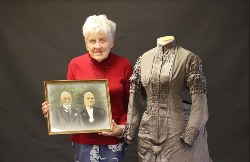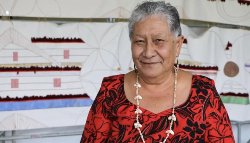Eat well and you’ll live longer.
Media Release
20 June 2002
FOR IMMEDIATE RELEASE
Eat Well Live Longer
Eat well and you’ll live longer.
That’s the message delegates will hear at this week’s Cancer Society Eat and Run Meeting to be held in Wellington on Friday June 21.
Leading international researchers such as Dr Elio Riboli, Chief of the Nutrition and Cancer Unit at the International Agency for Cancer Research, and Professor Adrian Bauman from the University of New South Wales will join New Zealand experts to present the evidence.
“It will be a chance to find out the latest results from international research on nutrition and cancer,” says Cancer Society Health Promotion Programme Manager Carolyn Watts.
Dr Riboli, will report on findings from the European Prospective Investigation into Cancer and Nutrition (EPIC).
“EPIC is a very large study involving 522,000 people from 10 European Countries. The results are very important as the link between nutrition and cancer could have an enormous impact on the number of people developing cancer,” Dr Riboli says.
“We need to translate what we find from scientific research like the EPIC study into actual changes in behaviour. We now have sufficient evidence to advise people that they can reduce their risk of developing cancer if they are physically active, have a healthy body weight and eat at least five servings of fruit and vegetables each day.
The best time to start making these changes, she says, is when you are young,” Ms Watts says.
The Cancer Society believes that the importance of eating well and being physically active is not getting through to many New Zealanders.
“The public is faced with a deluge of information about diet and cancer. We are continually seeing stories reported with conflicting results. I think people often become so confused that they give up on making any changes to their diet,” Ms Watts says.
She says there are some very simple changes people can make that are outlined in the Cancer Society’s nutrition guidelines.
“These guidelines are based on scientific evidence and are a simple way of focusing on the changes that really will make a difference.”
- Eat five servings of fruit and vegetables every day.
- Eat a variety of foods with an emphasis on plant foods (fruits, vegetables, grains and cereals, beans).
- If you drink alcohol, do so in moderation.
- Keep fat to a minimum, especially animal (saturated) fat.
The other good news is that this type of eating pattern also reduces the risk of getting heart disease, diabetes and becoming overweight.
Ms Watts says Initiatives such as the highly successful 5+ A Day Programme are key to improving nutrition.
Paula Dudley, who manages the 5+ A Day Programme, run by United Fresh, will present the latest campaign results at Eat and Run.
“The 5+ A Day Programme is seen as an international leader in successful programmes to increase the consumption of fruit and vegetables by children.
“5+ A Day has certainly made a difference, the number of people who know that eating at least five servings of fruit and vegetables each day is important for health increased from 58 percent in 1995 to 87 percent in 1999” Ms Dudley says.
The Cancer Society hopes the combined voices of our international and New Zealand experts will encourage people to make positive lifestyle changes and reduce the cancer mortality rates in this country.
¡Kends/


 Braden Currie: Sets Sights On The Ironman North American Championships In Texas
Braden Currie: Sets Sights On The Ironman North American Championships In Texas Whanganui Regional Museum: Historic Wedding Dress Unveiled, A Piece Of Marton’s Heritage
Whanganui Regional Museum: Historic Wedding Dress Unveiled, A Piece Of Marton’s Heritage Donovan Ryan: Local Runner Takes Out Frontrunner Christchurch Marathon
Donovan Ryan: Local Runner Takes Out Frontrunner Christchurch Marathon University of Auckland: Tributes Flow For Much Loved Pacific Leader Melegalenu’u Ah Sam
University of Auckland: Tributes Flow For Much Loved Pacific Leader Melegalenu’u Ah Sam NZEI: Ministry Of Education Cuts Will Disproportionately Affect Pasifika
NZEI: Ministry Of Education Cuts Will Disproportionately Affect Pasifika Day One Hapai te Haeata: Call To Action For Young Filmmakers Against The Backdrop Of Funding Cuts
Day One Hapai te Haeata: Call To Action For Young Filmmakers Against The Backdrop Of Funding Cuts